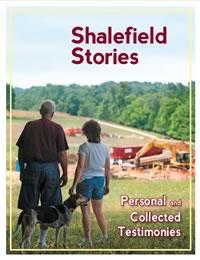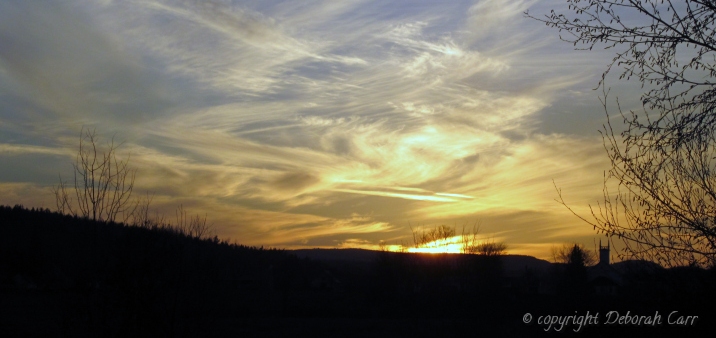(with notes from R. LeChance and D. Core)
Last week in Hillsborough, Dave Core, founding president of CAEPLA, Canadian Association of Energy and Pipeline Landowners Association poke to a full house of southern NB landowners on the issue of leasing land for pipelines or gas/oil wells.
 Dave has spent decades advocating for landowner property rights across the country. He jokingly commented that, despite his ponytail, he was not an environmentalist, but was, in fact, pro-development. But never at the expense of the landowner.
Dave has spent decades advocating for landowner property rights across the country. He jokingly commented that, despite his ponytail, he was not an environmentalist, but was, in fact, pro-development. But never at the expense of the landowner.
Dave hopes to create more responsible land stewardship and to ensure industry is held to higher levels of compensation, accountability and safety through lease agreements.
Pipeline companies are beginning to survey lands east and west of Fredericton for the proposed West-East pipeline and the government has scheduled town hall meetings in a limited number of communities. At the same time, gas companies are exploring for shale gas in south-east New Brunswick and preparing for further development in other areas.

Pipeline surveyors are already contacting people in the Saint John River Valley. Listen to this interview on CBC and this online article.
Dave’s talk in summary:
- Gas and oil companies lease the surface of your land to extract the resources.
- Pipeline companies can acquire the use of your land through “Easement Agreements” that leave your name on title.
In both cases the energy companies can apply to the government through “regulatory processes” for “right of entry” (expropriation).
This takes away your right to negotiate a fair contract protecting your best interests. You have no leverage to negotiate once your property rights have been taken by legislation that creates either ministerial or regulatory processes giving all the advantages to the oil/gas and pipeline industry. The only way to counter-balance this is when landowners work together to level the playing field and to force governments to change the legislation protecting property rights.
Here are some important points to understand, should someone approach you to lease/survey your land:
- Most important: Do not sign any oil or gas leases or pipeline agreements (surveying, exploration, land, etc.) unless you know exactly what you are signing. Signed documents of any type have been successfully used by pipeline and gas and oil companies to indicate the landowner’s approval for development. Even attending a ‘town hall’ consultation meeting and filling out a survey or information form can be used to ‘verify’ that the company has ‘consulted’ with you.
- Pipeline companies do not want to own or lease your land; they want to take your land through an easement agreement which leaves your name on title. In this way, partial or total liability for any damages remains with the landowner.
- Any easement on your land, including all future liabilities, will be tied to your property even if you attempt to sell it. The easement may restrict your use or any future buyer’s use of the land.
- If you refuse to sign an easement agreement, the company can apply for a ‘Right of Entry’ that the federal government’s National Energy Board will approve. This taking of land is to the financial benefit of pipeline company shareholders. It is rent control for pipeline monopolies.
- Land agents will play neighbour against neighbour to make sure that they do not pay fair industrial rates for the land and to avoid signing an ironclad contract that protects your property. You have little bargaining power as an individual.
- Landowners across Canada now understand that the only way to get fair compensation for oil and gas leases is to talk to each other. The only way to protect your family’s safety, environment, businesses and investments is by working together to demand ironclad contracts and changes to government legislation respecting property rights. It is only the front line people, those directly affected, that can address these issues and protect our water and stewardship responsibilities.
- Verbal assurances from a land agent or a gas company are not legally binding. Anything not written into the oil/gas lease or a pipeline easement is NOT in the agreement.
- Very few lawyers have the necessary experience in property rights issues associated with the laws relating to gas companies and gas leases to actually address the best interests of an affected landowner. When landowners work together, they have leverage to negotiate better agreements and to hire legal counsel who understand the enacting legislation and will stand up for landowner rights.
- Land agents do not look after your best interests. It is their job to acquire lease/easements at the lowest price with the least responsibility for their clients; i.e. the gas/pipeline companies. When you purchase a house through a realtor, they represent the seller, not the buyer. Land agents represent the buyer (gas company), not the seller (property owner). Their fiduciary responsibility is to the company paying their contract not to the property owner; do not let them convince you otherwise.
The proposed west-east pipeline would be regulated by the National Energy Board (NEB), and their regulations supersede anything you agree to with the pipeline company, provincial environment or regulatory laws. Once the pipelines are abandoned with NEB approval, the NEB no longer has jurisdiction; responsibility falls back on the landowner. The landowner whose name is on the title, will fall prey to provincial environmental and safety laws, potentially making his/her property a brown space, like an abandoned gas station. This is why pipeline companies do not want to own the land their pipelines cross, they ultimately do not want responsibility when all is said and done.
The best way to protect your best interests when approached to lease land for pipelines or well pads is for landowners to work together to force contracts that are renegotiated or updated every 5 years. Contracts should address abandonment and other risks, liabilities, duty of care and other costs that are often left to affected landowners when they legally belong to pipeline companies.
By creating a NB Landowners Association, landowners form a united front enabling them to negotiate better easement agreements (or perhaps a lease with annual payments renegotiated every 5 years) that help protect safety and property values. It is only by working with your neighbours that you can level the playing field.
We need our local communities and our Provincial Governments to support us in holding the Federal government and its NEB responsible for our property rights.
About CAEPELA
CAEPLA has created an
instruction booklet –
When the Landman Comes Calling – advising landowners of the risks of leasing. If you know of a neighbour who has been approached by a land agent or anyone else trying to acquire a land or pipeline lease, share or print the attached document with them. Also share the document with anyone who has stated they are willing to lease their land.




